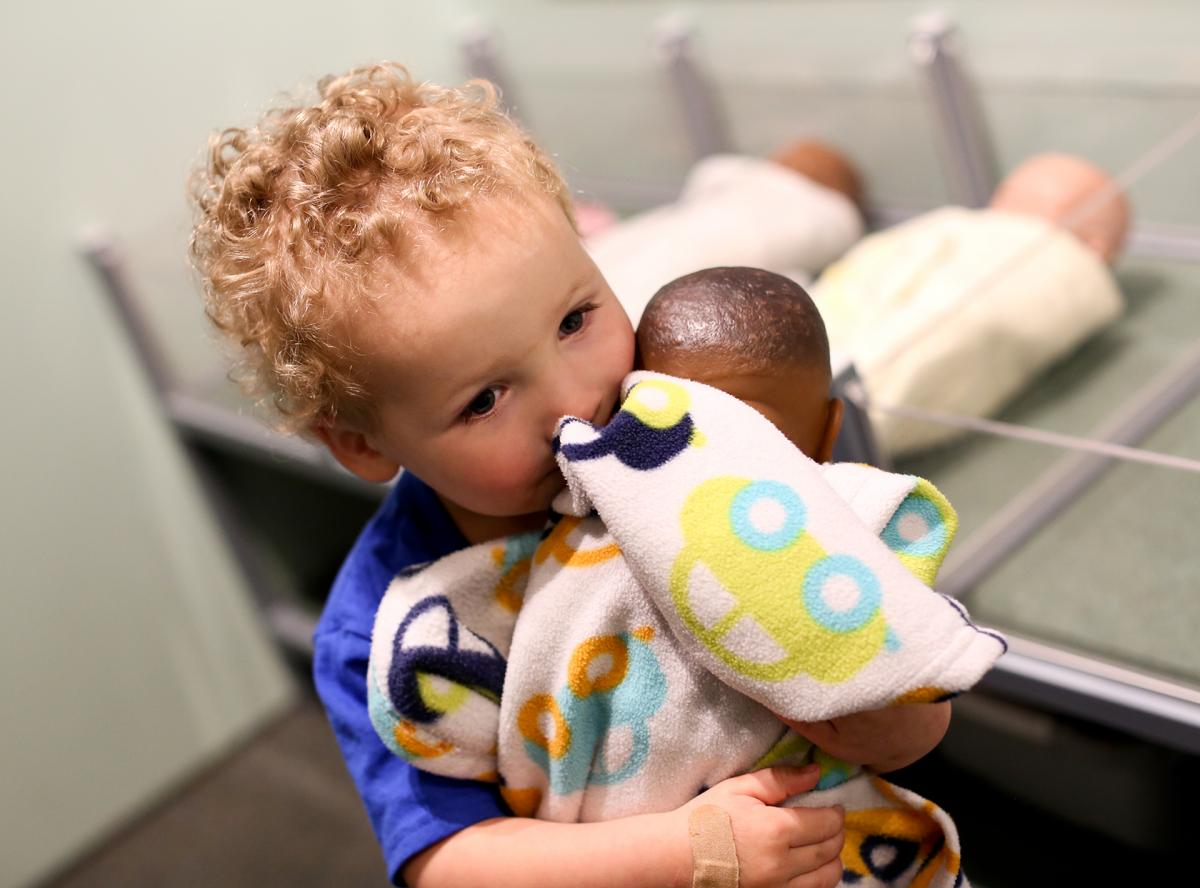At Treehouse we see thousand of children and parents every week (175,000 visitors a year) and so we see lots of great parenting in action. We have learned a lot about what parents can do to support their child’s self control and what hinders children in developing the skills they need. Our staff recommend reading Dr. Laura Markham’s “Peaceful Parent, Happy Kids: How to Stop Yelling and Start Connecting.” Dr. Markham says there are some important things parents can do to help their children manage their impulses to meet their own goals. This type of self regulation is vital for children to learn so they can control their emotions and anxiety.
Parents need to teach trust. Parents do that by comforting and soothing their child and every time they connect with their child when they are upset, their child’s neural pathways to soothe anxiety and regulate emotions are strengthened.
Parents need to model emotional regulation themselves. When parents react angrily to a child’s behavior, instead of staying calm and compassionate, children learn that it’s difficult, if not impossible, to control emotions and behavior. When your toddler climbs too high and get’s frightened, do you guide her down and talk calmly and soothingly? If so, you are teaching self control. If you yell or just just lift your child down, the child learns that she’s incompetent and anxiety can’t be tolerated.
Parents need to set limits for their children, limits they can accept and thus practice self-control. Your child may want to keep playing instead of taking a bath, but he wants something more than playing longer and that’s a strong and loving connection with his parent. If children don’t have limits or have limits that they are not developmentally able to comply with, then they learn to disregard the limits parents do set, setting the stage for confrontations and misunderstanding in the future.
Parents need to help their children learn to wait. Parents can reassure children that the wait is worth it and teach the valuable skills of self-distraction. If a parent snaps at a child to stop whining, the child is given no help in learning to how to wait. Refocusing a child’s attention on something else is a great strategy.
Parents need to remember that playing with other children in their neighborhoods, at school, and at Treehouse helps a child learn to manage her emotions and impulses as she takes turns, shares toys, and negotiates the rules of playing with others.
Children need to know that we can’t control the world, but we can control how we respond to it. And, that’s a powerful lesson for all of us to learn.









































